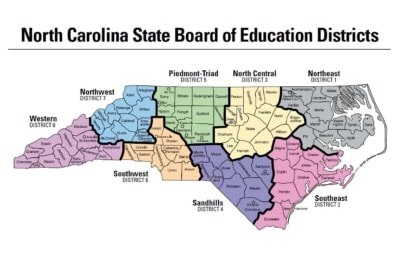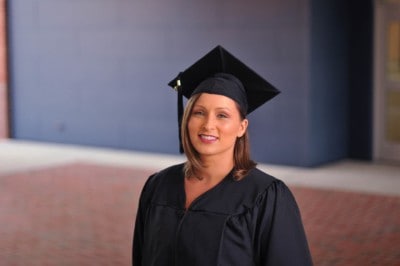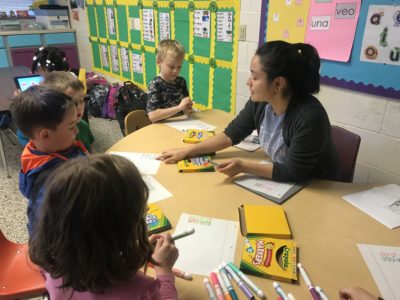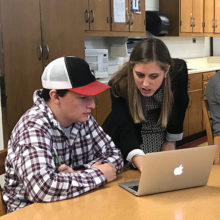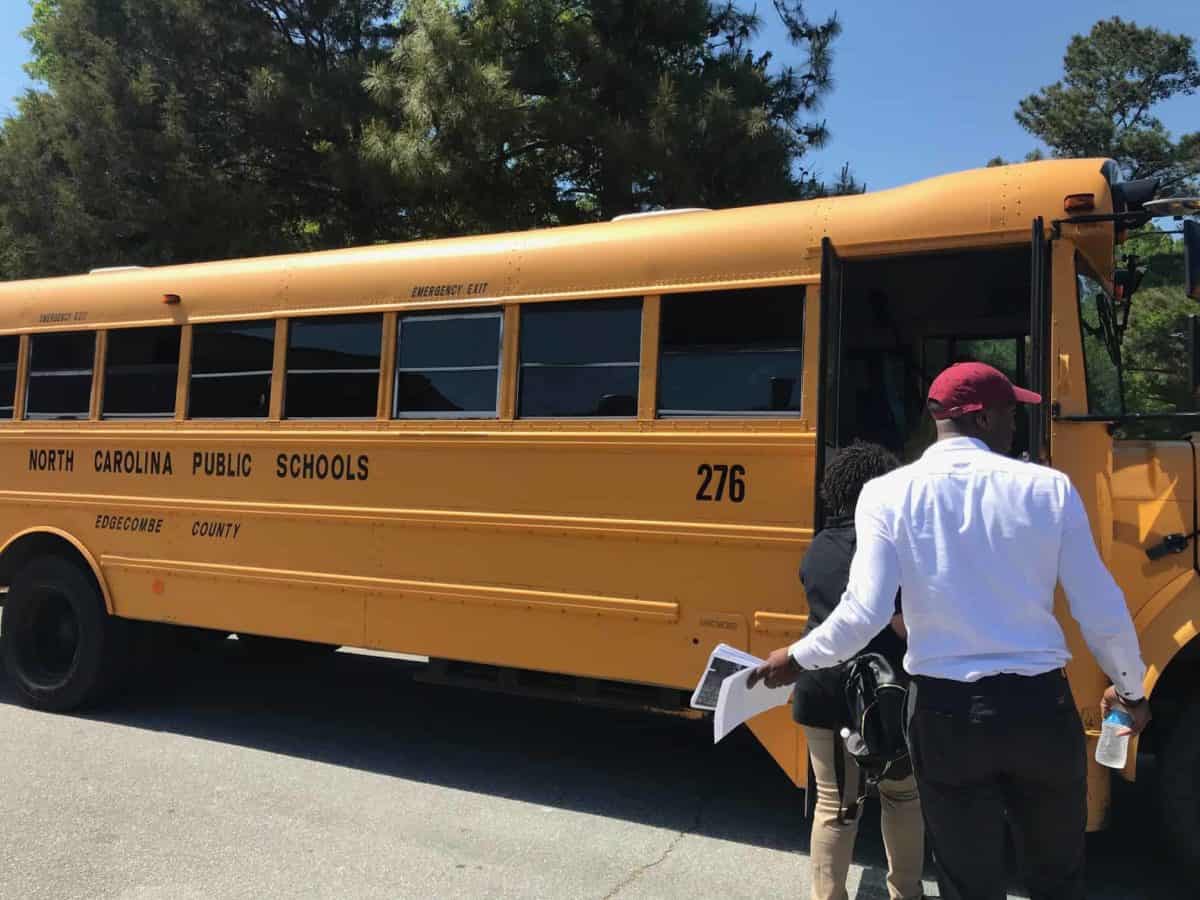
“What did my child do?”
For most parents, getting a phone call from their child’s school is bad news. When I was teaching, I tried to balance the bad news calls with good news calls to tell parents about something great their child did that day. However, even after a year of positive calls home, most parents’ first impulse when they received a call was that their child got in trouble at school.
Imagine what they must be thinking, then, when the school bus not only drops off their child but also four teachers and the principal, and they want to talk to the parent.
For the past two weeks, the staff at North Edgecombe High School in Edgecombe County have been riding school buses home with their students. At each stop, teachers and administrators get off the bus with the student and greet mom, dad, grandma, grandpa, or whoever is home.
While this is the second time North Edgecombe staff have done these bus rides (they started in the fall), most of the parents are still confused when they see teachers on their front porch, especially when they see the sheriff escort behind the school bus.
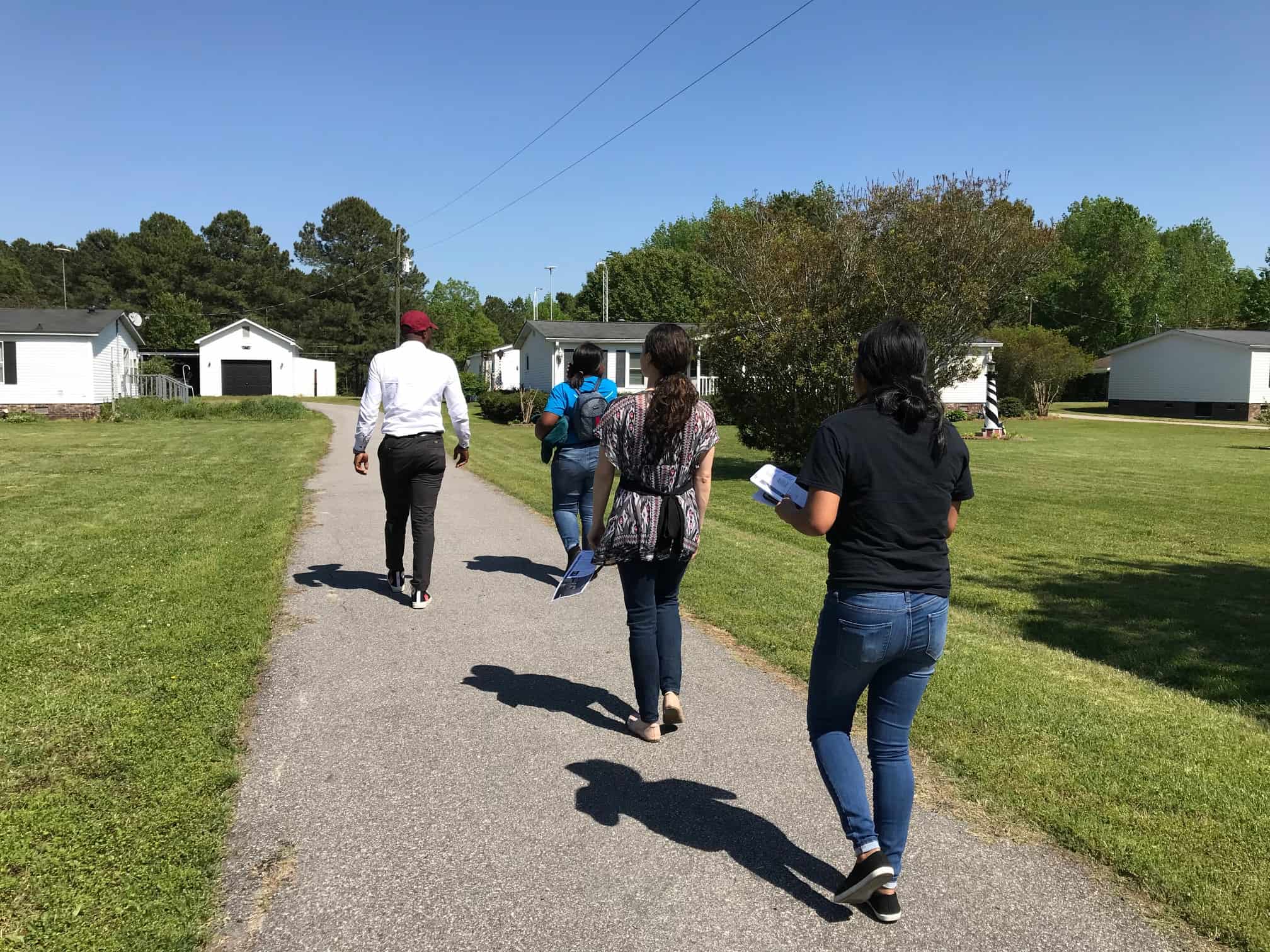
“Why are they doing this?,” Kayla Medlin, a North Edgecombe student, asked in between stops.
The goal of these bus rides, according to principal Donnell Cannon, is to build community within their school by deepening relationships between staff and students and learning more about where each student comes from.
“We’re deeply rooted,” Cannon told Medlin. “We want to know what are your challenges, what are your cultural assets, and what are your community assets. We serve seven disparate communities where cultural norms are all different. How might we learn more about the community and build community in our school?”
Cannon is working with Edgecombe County Superintendent Valerie Bridges, Director of Innovation Erin Swanson, and Phillips Middle School principal Jenny O’Meara to reimagine the school experience at North Edgecombe and Phillips Middle. The group is working with Transcend Education, a national organization that partners with schools to design 21st century learning models.
For Cannon, the bus rides are one way to learn more about his students’ lives in the hopes of creating an education experience that supports them.
“It’s really hard and difficult to design our school model around our students’ life context and identity without understanding what that means. And that’s where we want to start. We want our school to focus on identify affirmation. What makes our kids unique? How do we create a space that allows our students to show up in the fullness of who they are? And I think that design starts right here — getting out into our communities, meeting our parents, seeing where our kids live, and then seeing how might we design a school to support those identities.”
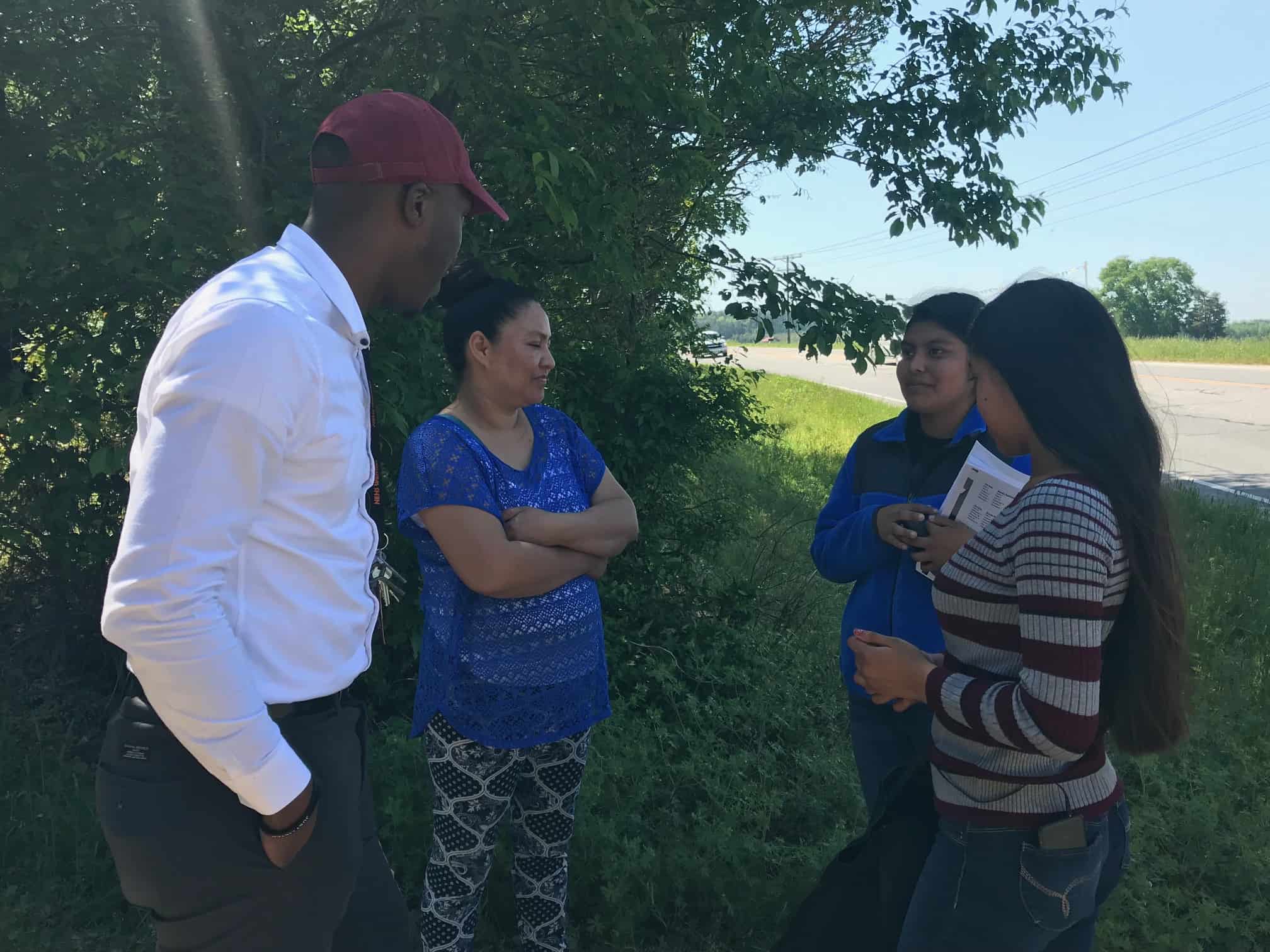
Each stop represents an opportunity for teachers and staff to learn more about and connect with their students. At one house, social studies teacher Mitchell Johnston tells a student’s mother about a great point the student made in a class debate earlier that week. At another stop, assistant principal Caroline Joyce and principal in residence Jamilah Collins tell a parent how her daughter consistently makes good choices even when her peers do not. Cannon and Collins end each conversation by asking the family what their hopes and dreams are for their children.
The bus ride itself gives staff an opportunity to interact with students outside the school building. Cannon asks students about their interests, what music they listen to, what they like about school, and what they wish they could change.
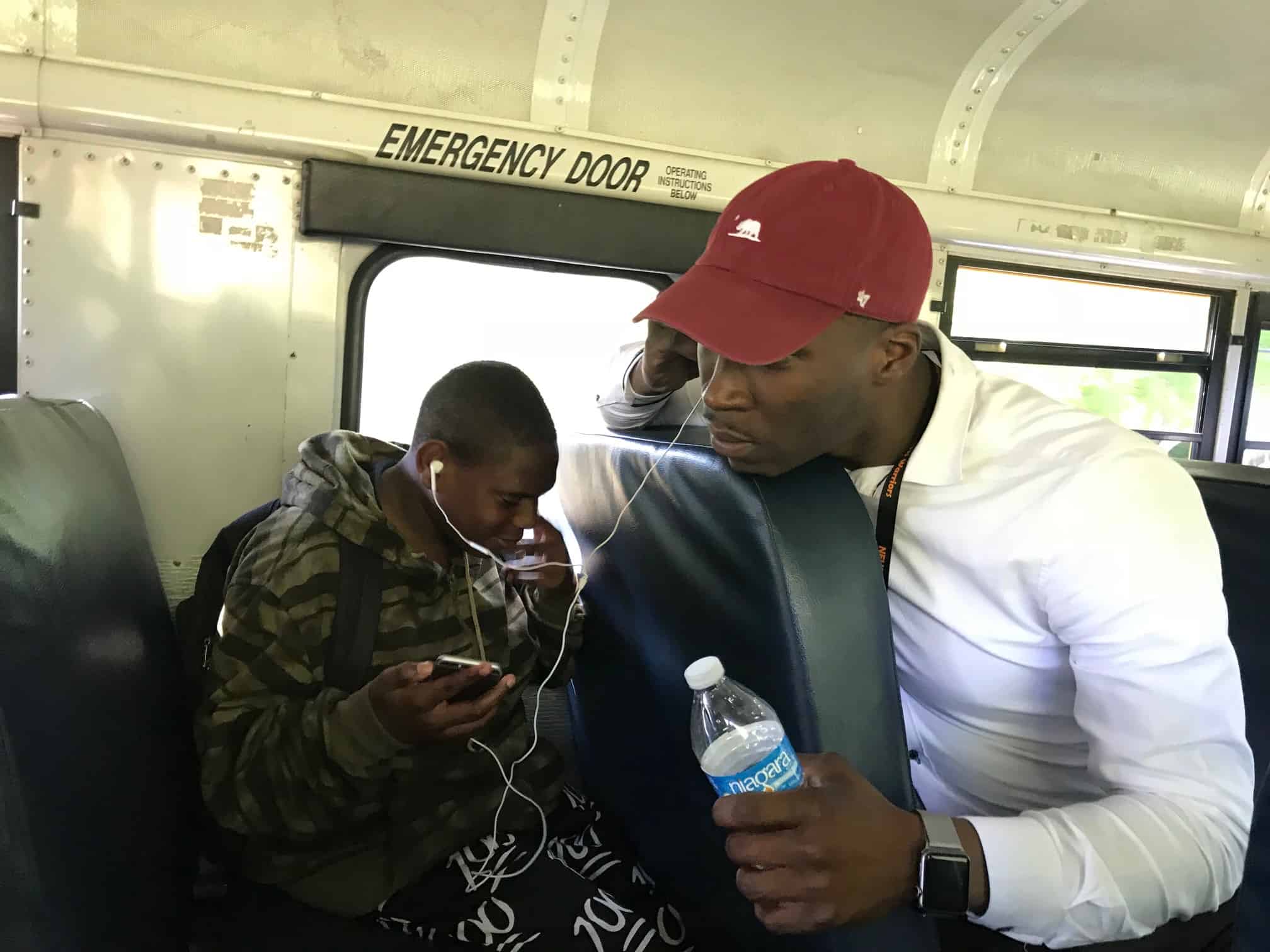
When Cannon asked Medlin what she liked about school today, she said, “My second and fourth periods.” When asked why, she responded that she liked those classes because she got to see two of her favorite teachers. Both teachers care about her, and she feels she can talk to them about anything. “Ms. Grady always knows what to say and when to say it,” Medlin stated, illustrating the importance of students having good relationships with teachers.
Johnston, a first-year social studies teacher at North Edgecombe, said he enjoys being in the classroom, but it is making these connections outside of school that fuels his passion for teaching. “The biggest thing for me — the thing that I like the most, the thing that gives me energy — is stuff like this. I get to talk to my students, see them outside of school, and talk to their families.”
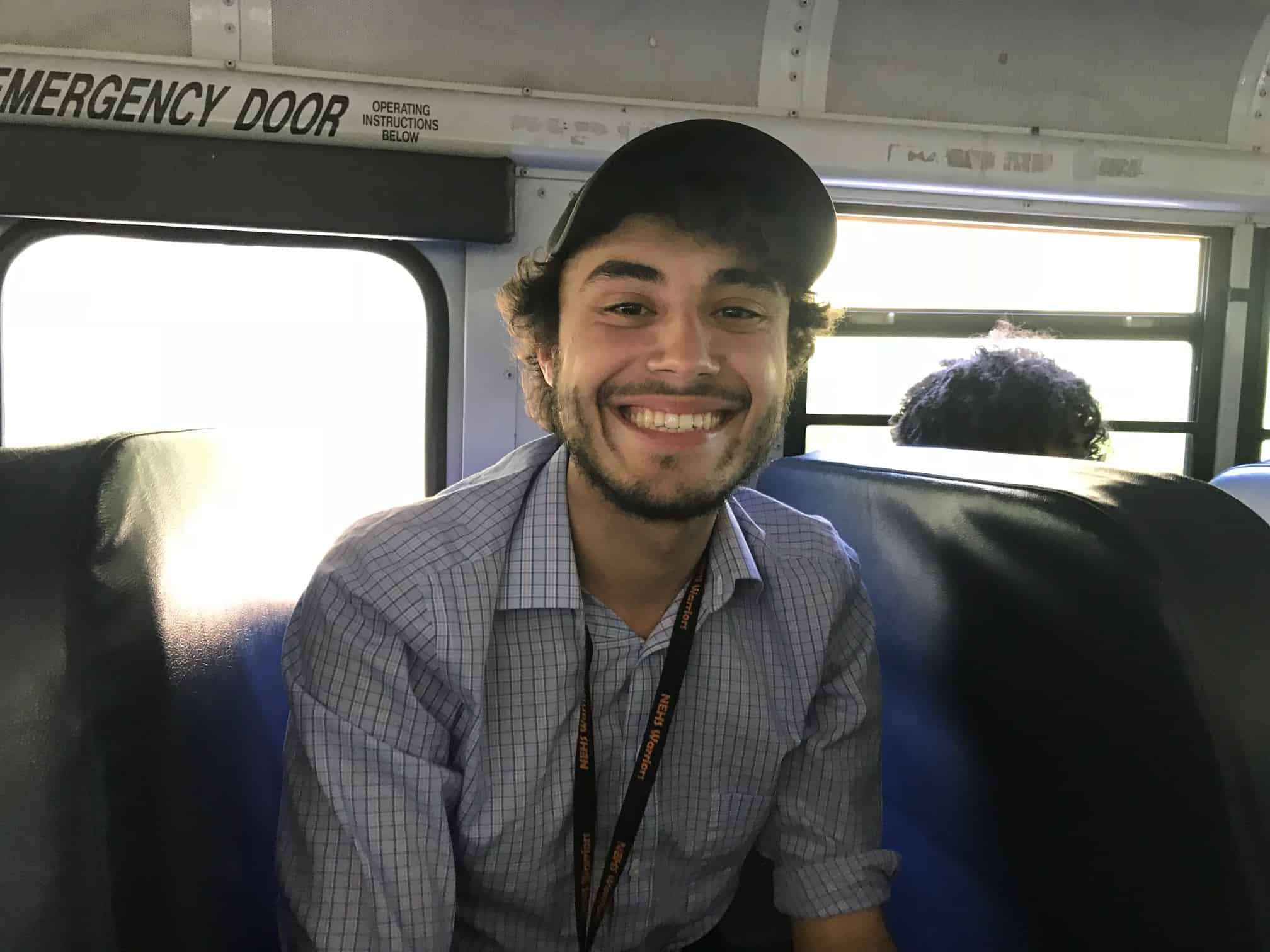
Johnston learned about principal Cannon and his vision for North Edgecombe by reading an EducationNC article by Liz Bell. After reading the article, he knew he wanted to work for Cannon, so he called him up and asked for an interview. He is now finishing up his first year teaching social studies there and is looking forward to next year.
North Edgecombe staff will finish up the bus rides next week, after which they are holding a family night with Phillips Middle and Coker-Wimberly Elementary.
Editor’s Note: Donnell Cannon is on EducationNC’s Board of Directors.
Recommended reading
